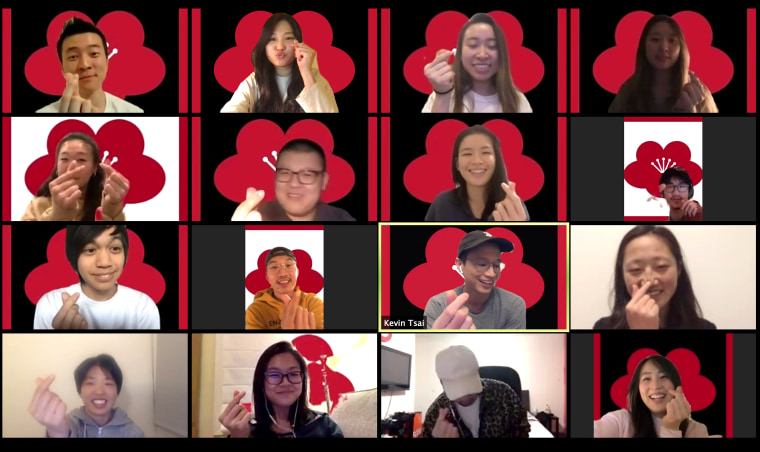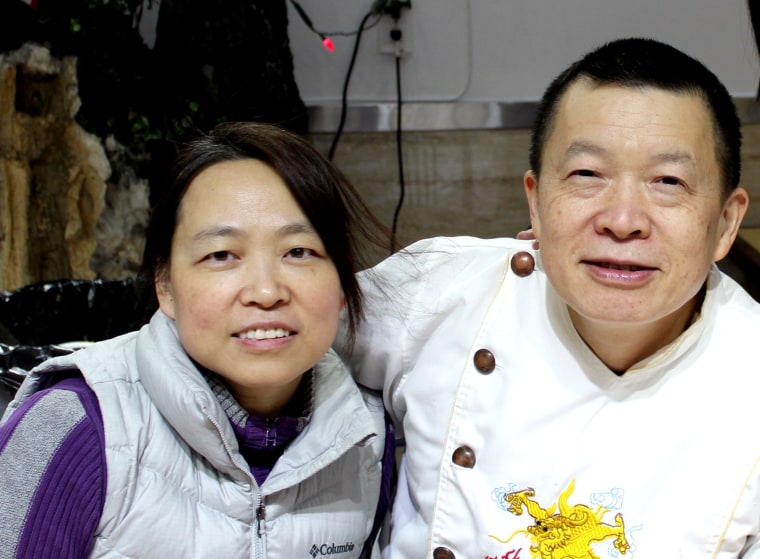Justin McKibben got the idea for his new nonprofit in mid-March, when service companies like Open Table, Help Main Street, and his employer, Square, launched digital gift card initiatives to support local businesses.
McKibben, who is a Chinese Vietnamese American and lives in Manhattan’s Chinatown, realized that many nearby Chinese diners couldn’t benefit from these project because they lack the infrastructure for electronic transactions.
Most mom and pop shops in the city’s nine Chinatowns are run by an older generation of immigrants who speak little English and rarely use the internet to conduct business. Many accept only cash payments and record expenses on paper. The inability to orchestrate online fundraisers is one reason nearly 90 percent of restaurants in Manhattan’s Chinatown have shuttered.
“It took me a while to grasp how few merchants in Chinatown actually use Square,” McKibben, 24, told NBC Asian America. “Everything is passed through word-of-mouth.”
As a software engineer, he figured he could apply his skills to help owners who’d been left out of fundraising campaigns. He made a call for volunteers on Instagram and, within a week, launched Send Chinatown Love, an initiative that builds websites for Chinese enterprises. Through these websites, anyone can make donations or buy gift cards. More than 25 young professionals have since joined the cause, handling everything from outreach and translation to web design and marketing.
“None of us has been in this nonprofit space before,” McKibben said. “We all just love Chinatown and worry that it would disappear one day.”

Without prior experience, finding merchants proved to be a huge hurdle.
Unlike some other local aid groups, which tend to support restaurants that are already well-known in the community, the organization specifically targets obscure, highly vulnerable eateries. But making contact with these owners has been difficult. Many of them have temporarily shuttered their businesses and don’t use email. Cold calls are rarely successful. When the team does manage to make contact, some owners have expressed skepticism and declined their service.
Part of this wariness can be chalked up to the acculturation gap between those who run the restaurants -- those who immigrated to the U.S. later in life -- and the volunteers, who were born in the country or arrived as children. Though many in the group grew up in Chinese enclaves and speak their mother tongue fluently, they didn’t have deep ties to the community.
“I didn’t imagine a world where we’d be offering free help and people would say no,” sales lead Julia Lau said. “But it’s helped us shift our focus to building trust with merchants."
Rather than asking businesses to adopt an entirely new point of sale provider, Send Chinatown Love handles all sales and transactions, and covers the resulting fees. Then it pays owners directly in cash. This payout system, LauFei said, creates more transparency in the fundraising process and assures owners they’ll receive the entirety of proceeds raised.
In the past month, Send Chinatown Love has created individual websites for five restaurants, all found through personal connections. Each website features a colored illustration of the storefront, tabs to donate, a link to the menu, and a short summary of the owners’ backstory. Each page also has another version in Chinese.

The organization’s first onboarded merchant, Shunfa Bakery in Brooklyn, has received more than $1,400 in donations. It’s enough to cover gas and utilities, and a bit of rent, Ana Luo Cai, whose parents opened the shop in 2015, said. It’s also the only bit of aid they’ve received since the pandemic began.
None of the other local initiatives Luo Cai had applied to could help the business, partly because it ran cash-only and low-tech. Another reason was that her parents weren’t wholly receptive to outside assistance.
“For them, there’s a stigma that comes with asking for help when you’re supposed to be successful business owners,” she said.
For the founders of New Win, a Fuzhounese restaurant in Queens, the partnership was an easier sell. They were drawn to the fact that going online didn’t require them to abandon their analog bookkeeping methods, especially regarding gift card transactions.
Before it was forced to close in mid-March, New Win was already selling paper vouchers, Ling Song, whose parents opened the eatery in 2006, said. The process that Send Chinatown Love devised converts each e-gift card purchase to a code and a specific dollar amount, which Song’s parents can jot down on paper — just as they had done before.
“If you already have a pen and paper system, it would require no change in habit at all,” said Song, who also volunteers with the group’s outreach team.
Like Shunfa Bakery, New Win has also pulled in more than $1,500 in funds through its new webpage. The first cash payment arrived last weekend, and all of it will go to rent, Song said. In the two months since they closed shop, her parents have had to dig into their savings to pay the bills. The money came as a big relief to them, she said, even if they weren’t especially keen on soliciting donations.
“They have a ‘just take whatever we can get’ mindset,” Song said. “But I think now they see the value in having an online presence and how much it’s helped them.”
Follow NBC Asian America on Facebook, Twitter and Instagram.


